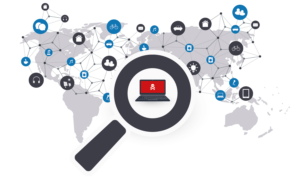
Safeguarding Your Data: The Critical Role of Ransomware Protection Tools
Introduction:
In the digital age, the rising threat of ransomware continues to haunt businesses and individuals alike. These malicious attacks encrypt valuable data, rendering it inaccessible until a ransom is paid, causing substantial financial losses, operational disruptions, and reputational damage. To fortify defences against this perilous threat, organizations must employ robust ransomware protection tools, as traditional antivirus software often falls short in combating this sophisticated menace.

Understanding Ransomware Protection Tools:
Ransomware protection tools are specialized software solutions designed to detect, prevent, and mitigate the impact of ransomware attacks. They leverage various mechanisms, such as behavior-based analysis, machine learning, and real-time monitoring, to identify suspicious activities and prevent unauthorized encryption of data.
The Importance of Ransomware Protection Tools:
1. Advanced Threat Detection:
- These tools employ heuristic and behavioral analysis to detect ransomware signatures and anomalous activities, preemptively blocking potential attacks.
2. Real-time Monitoring and Response:
- They continuously monitor system behavior, identifying suspicious patterns and promptly initiating response mechanisms to halt ransomware propagation.
3. Data Backup and Recovery:
- Ransomware protection tools often integrate robust backup solutions, enabling organizations to restore data from secure backups in case of an attack.
4. File Integrity Monitoring:
- They provide continuous file integrity checks, ensuring any unauthorized alterations or encryption attempts are immediately flagged and addressed.
5. Ransomware Simulation and Training:
- Some tools offer simulated ransomware attack scenarios and user training modules to educate employees, enhancing their ability to recognize and respond to threats effectively.
Why Antivirus Software Falls Short:
Traditional antivirus solutions primarily focus on known malware signatures and patterns, making them less effective against evolving ransomware threats. As ransomware tactics become increasingly sophisticated, including fileless attacks and zero-day exploits, antivirus solutions struggle to provide adequate protection.
Commercial and Open-Source Ransomware Protection Tools:
Commercial Tools:
- CrowdStrike Falcon: Known for its advanced threat intelligence and behavior-based detection, Falcon offers comprehensive protection against ransomware attacks.
- Sophos Intercept X: Featuring deep learning technology, Intercept X provides effective real-time protection against ransomware, blocking threats before they execute.
- Cisco Talos: Leveraging threat intelligence, Talos offers a suite of tools to detect, prevent, and respond to ransomware attacks across networks and endpoints.
Open-Source Tools:
- RansomWhere?: An open-source tool for Mac systems that identifies ransomware behavior and stops encryption attempts.
- Ransomware Protection Framework (RPF): A community-driven framework offering resources and guidance for implementing ransomware protection strategies.
- AppCheck Anti-Ransomware: Open-source anti-ransomware software that detects and prevents ransomware attacks on Windows systems.
Use Cases of Ransomware Protection Tools:
- Endpoint Protection: Protecting individual devices such as laptops, desktops, and servers from ransomware attacks to safeguard critical data.
- Network Security: Implementing protection measures across the entire network infrastructure, including firewalls, gateways, and intrusion prevention systems.
- Email Security: Filtering and scanning email attachments to prevent phishing attempts and malicious payloads from initiating ransomware attacks.
- Cloud-Based Protection: Utilizing cloud-based security solutions to secure data stored in cloud environments against ransomware threats.
- Backup and Recovery: Employing ransomware-aware backup solutions to create and maintain secure, isolated backups for rapid data restoration post-attack.
Conclusion:
As ransomware threats evolve in complexity and sophistication, the significance of dedicated ransomware protection tools becomes increasingly critical. Unlike traditional antivirus software, these specialized tools offer advanced threat detection, real-time monitoring, and comprehensive protection measures to combat the ever-evolving ransomware landscape.
By investing in robust ransomware protection tools, businesses can significantly fortify their defenses, mitigate the risk of attacks, and safeguard their sensitive data and systems against the devastating impact of ransomware.
